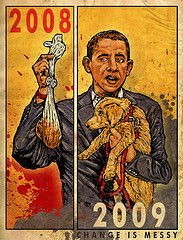The Financial Times has called Cohen "one of the biggest players on Wall Street". The Wall Street Journal refers to Cohen as "arguably the country’s leading banking lawyer".
Cohen participated in the bank negotiations in January 1981 that resulted in the freeing of the Americans held during the Iran hostage crisis. Cohen has also been a key player in the resolution of most major bank failures in recent decades, including Continental Illinois, First City, Southeast, Franklin National Bank and Bank of New England and, at the recommendation of the Federal Reserve, the Ohio thrift crisis during the U.S. Savings and Loan crisis in the 1980s. Following the September 11, 2001 attacks, Cohen was a leader in the Wall Street community rallying support for Lower Manhattan.

WASHINGTON — A prominent New York attorney has withdrawn from consideration for the No. 2 job at the Treasury Department, the second person to drop out of the running for the post, a Democratic source said Thursday.
The Democratic source, who spoke on condition of anonymity because it involved personnel matters, said that H. Rodgin Cohen had asked to have his name removed from consideration for the job of deputy Treasury secretary.
The Obama administration has had trouble filling posts at the Treasury Department, leaving Treasury Secretary Timothy Geithner as the only official whose nomination has cleared the Senate confirmation process as the administration grapples with the worst economic crisis in seven decades.
Democratic sources say that H. Rodgin Cohen, a partner in the New York law firm Sullivan & Cromwell LLP, and the leading candidate for Deputy Treasury Secretary, has withdrawn from consideration.
It's the third withdrawal of a top Treasury Department staff pick in less than a week. I reported last week that Cohen was likely to be officially nominated for the Deputy Treasury Secretary position.
Cohen has been a counsel to just about every major player on Wall Street, which perhaps complicated his nomination.
Now, the nomination is off.
Democratic sources said that an issue arose in the final stages of the vetting process.
As one source put it, "it's back to the drawing board."







What I wonder is why, if the financial crisis was so bad, didn't they just hold over Bush administration people at Treasury until their replacements were appointed?
ReplyDelete